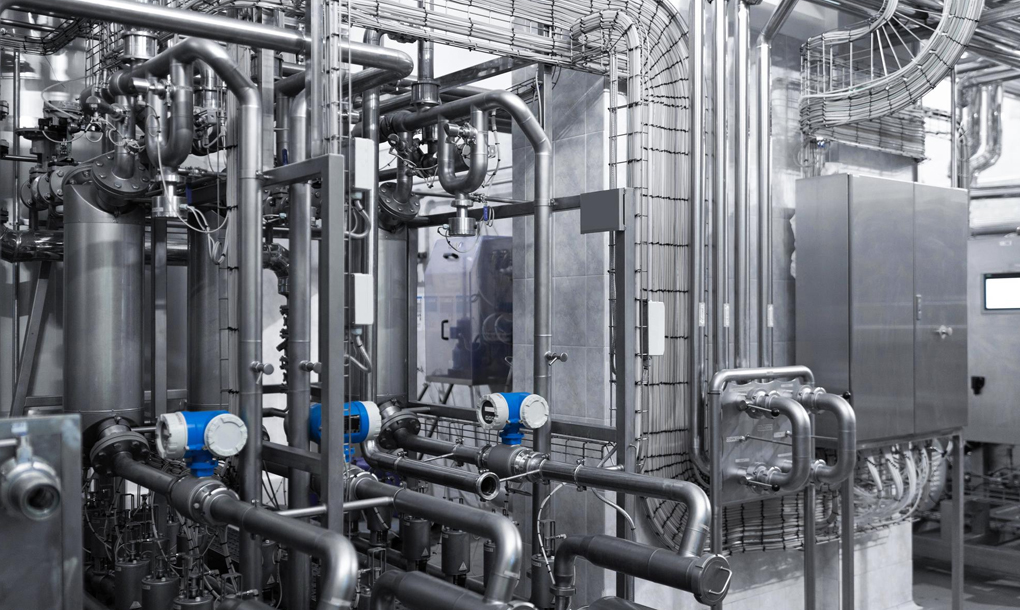28 Oct
Industrial Lyophilizers: Types, Sizes, and Configurations for Different Industries
Lyophilization, or freeze drying, is a critical process in various industries, from pharmaceuticals to food production. The heart of this process lies in the lyophilizer, a sophisticated piece of equipment designed to remove water from frozen products through sublimation. In this blog, we'll explore the different types, sizes, and configurations of industrial lyophilizers, and how they cater to the unique needs of various industries.
Types of Industrial Lyophilizers
Industrial lyophilizers come in several types, each designed to meet specific production requirements and product characteristics.
Tray Lyophilizers
Tray lyophilizers are the most common type used in industrial settings. They consist of a vacuum chamber with multiple shelves on which product trays are placed.
Key Features:
- Suitable for a wide range of products
- Easily scalable
- Good for batch processing
Best For: Pharmaceuticals, bulk food products, and research applications
Manifold Lyophilizers
These lyophilizers have multiple ports to which flasks or vials containing the product can be attached.
Key Features:
- Ideal for processing small quantities of different products simultaneously
- Flexible operation
- Often used in laboratory settings
Rotary Lyophilizers
Rotary lyophilizers use a rotating drum instead of shelves, allowing for continuous processing.
Key Features:
- Suitable for large-scale production
- Enables continuous operation
- Good for products that require agitation during drying
Best For: Large-scale food production, some pharmaceutical applications
Spray Freeze Dryers
These combine spray drying with lyophilization, creating fine, porous particles.
Key Features:
- Produces uniform particle size
- Excellent for powders and inhalable drugs
- Rapid drying times
Best For: Pharmaceuticals, especially inhalable drugs and vaccines
Sizes of Industrial Lyophilizers
Lyophilizers come in a wide range of sizes to accommodate different production scales.
Benchtop Lyophilizers
- Capacity: Typically less than 5 liters
- Use: Small-scale research, product development
Pilot-Scale Lyophilizers
- Capacity: 5 to 50 liters
- Use: Scale-up studies, clinical trial material production
Production-Scale Lyophilizers
- Capacity: 50 to 1000+ liters
- Use: Commercial production in pharmaceuticals and food industries
Large Industrial Lyophilizers
- Capacity: Over 1000 liters
- Use: High-volume production in the food and pharmaceutical industries
Configurations for Different Industries
Different industries have unique requirements for lyophilization, leading to specialized configurations.
Pharmaceutical Industry
Pharmaceutical lyophilizers are designed with stringent regulatory compliance in mind.
Key Features:
- cGMP-compliant design
- Clean-in-place (CIP) and sterilize-in-place (SIP) capabilities
- Precise temperature and pressure control
- Often equipped with automatic loading/unloading systems
Typical Configurations:
- Tray lyophilizers for vials and ampoules
- Manifold lyophilizers for small-batch production
- Spray freeze dryers for inhalable drugs
Food Industry
Food lyophilizers focus on preserving taste, texture, and nutritional value while handling large volumes.
Key Features:
- Large capacity
- Ability to handle a variety of food shapes and sizes
- Often include pre-freezing capabilities
Typical Configurations:
- Large tray lyophilizers for fruits, vegetables, and meats
- Rotary lyophilizers for coffee, tea, and soup mixes
Biotechnology Industry
Biotech lyophilizers are designed to handle sensitive biological materials.
Key Features:
- Ultra-low temperature capabilities
- Precise control over all process parameters
- Often smaller in scale than pharmaceutical lyophilizers
Typical Configurations:
- Specialized tray lyophilizers for enzymes and proteins
- Manifold lyophilizers for small-scale production of diverse products
Nutraceutical Industry
Nutraceutical lyophilizers balance the need for pharmaceutical-grade quality with food industry volumes.
Key Features:
- Combination of pharmaceutical and food industry features
- Ability to handle diverse product forms (liquids, gels, solids)
Typical Configurations:
- Medium to large tray lyophilizers
- Spray freeze dryers for powdered supplements
Advanced Features in Modern Industrial Lyophilizers
As technology advances, industrial lyophilizers are incorporating new features to improve efficiency, product quality, and ease of use.
- Controlled Nucleation: This technology ensures uniform ice crystal formation, leading to more consistent drying and improved product quality.
- PAT (Process Analytical Technology) Integration: In-line sensors and real-time monitoring systems allow for better process control and optimization.
- Adaptive Control Systems: These systems can adjust process parameters in real time based on product behavior, optimizing cycle times and energy usage.
- Energy Recovery Systems: Advanced lyophilizers incorporate heat recovery systems to improve energy efficiency.
- Robotic Loading/Unloading: Automated systems reduce human intervention, improving sterility and efficiency in pharmaceutical applications.
Choosing the Right Lyophilizer
Selecting the appropriate lyophilizer depends on several factors:
- Product Characteristics: Consider the physical and chemical properties of your product, including its sensitivity to heat and moisture.
- Production Volume: Match the lyophilizer size to your current and projected production needs.
- Regulatory Requirements: Ensure the lyophilizer meets all relevant industry standards and regulations.
- Process Flexibility: Consider whether you need a system that can handle multiple product types or batch sizes.
- Total Cost of Ownership: Look beyond the initial purchase price to consider operating costs, maintenance requirements, and energy efficiency.
Industrial lyophilizers are sophisticated machines that play a crucial role in preserving and processing products across various industries. From small-scale research units to massive industrial installations, the range of available types, sizes, and configurations ensures that there's a lyophilizer suitable for every application.
At Freeze Drying Systems, we understand the complexities of choosing and implementing the right lyophilization solution. Our team of experts can guide you through the selection process, ensuring you get a system that meets your specific needs, whether you're in pharmaceuticals, food production, biotechnology, or any other industry requiring top-quality freeze-drying capabilities.
